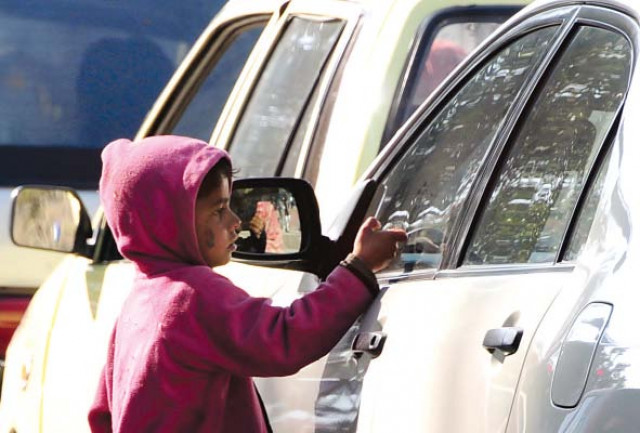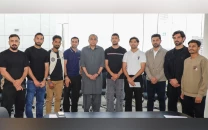Uniformity of policies to ensure child rights
Experts discuss the implementation of policies after the devolution of the ministry.

This discussion was conducted at the “National Consultation on the Concluding Observations and Recommendations and Ratifications of Optional Protocols”. The event was organised by the Society for the Protection of the Rights of the Children (Sparc) in collaboration with Plan Pakistan International on Thursday.
Arshad Mahmood, the Executive Director of Sparc, Hasan Mangi, Director of National Commission for Child Welfare and Robina Qaimkhani, Chairperson of National Assembly Standing Committee on Social Welfare and Special Education along with representatives of non-governmental organisations working on child right
issues participated in the discussion.
The purpose of the consultation was to follow up on the implementation of the Concluding Observations and Recommendations of the UN Committee on the Rights of the Child and ratification of the Optional Protocols to the UN Convention on the Rights of the Child (UNCRC). The Concluding and Observations and Recommendations is a 61-page document released in May 2010 that identifies the problems with child laws and issues pertaining to
their implementation in the country.
Participants were of the view that after the devolution of the ministry, the rights of children in Pakistan will be under a greater risk.
They said the lack of statistical data on child protection issues in the country was the main hurdle in addressing issues being faced by children. The government should take concrete measures, according to the participants, to address and reduce the serious gender inequalities and
discrimination against women and girls.
Arshad Mahmood said the UN committee on the Rights of the Child recognised the difficulties Pakistan was facing. These include serious economic challenges brought on by natural disasters, which in turn threaten children’s right to survive and develop. Efforts for children’s rights are also disrupted due to the displacement of a large number of people in Pakistan due to armed conflicts and terrorist activities.
“Currently there has been no progress in the adoption of the laws meant for the child rights in the country as urged by the UN committee,” Mahmood said.
The passage of 18th Amendment will make the adoption of these laws even more difficult as there is a lot of confusion between the centre and provinces, he added.
Mahmood said, “After the Juvenile Justice System Ordinance passed in 2000, no free legal aid has been provided to children in the jails.”
Terming the increase in the number of children in jails after the passage of the ordinance “phenomenal”, Mahmood said, “In Pakistan laws are made but unfortunately no budget allocated for their implementation.”
Haider Waseem Yaqub, Country Director PLAN International, raised concerns over the lack of monitoring mechanisms for the implementation of the concluding observations and recommendations. He added the NGOs working for children’s rights could bring the required change by sensitising parliamentarians and civilians and by creating mass awareness.
Ejaz Ahmad Qureshi, Head of the Child Complaint Office, said a lot of funds were allocated for the betterment of children in the country but due to leakage and lack of accountability they were “always” misused.
Robina Qaimkhani said there was no legislation in the country to safeguard child rights.
“Due to neglecting our children in the past now the country is facing serious issues in the form of child suicide bombers,” she said.
She said there should be a task force monitored by the parliamentarians to bring uniformity in the policies in the provinces on child rights.
Published in The Express Tribune, January 29th, 2011.





1733130350-0/Untitled-design-(76)1733130350-0-208x130.webp)













COMMENTS
Comments are moderated and generally will be posted if they are on-topic and not abusive.
For more information, please see our Comments FAQ